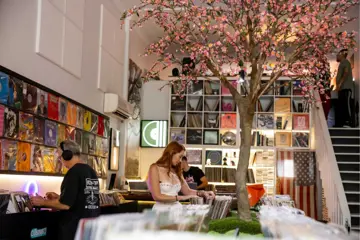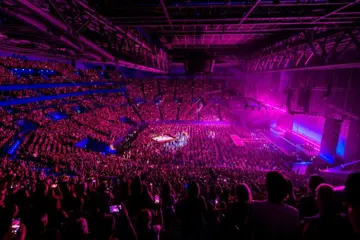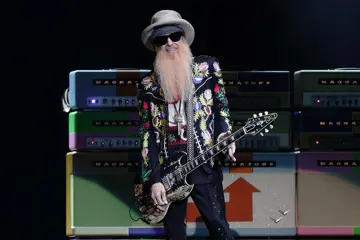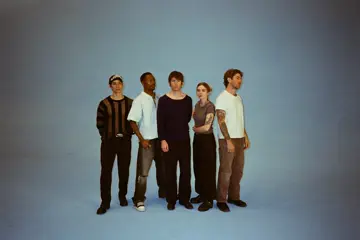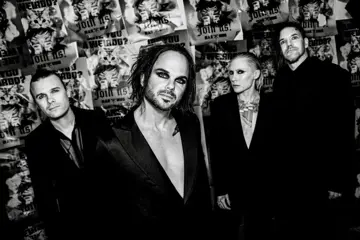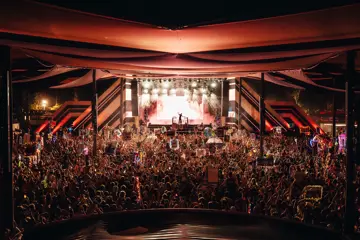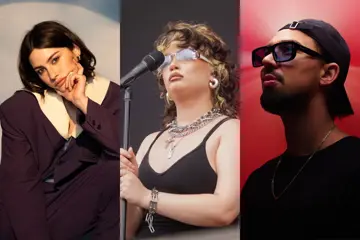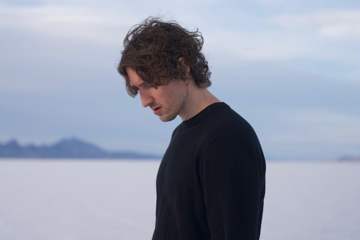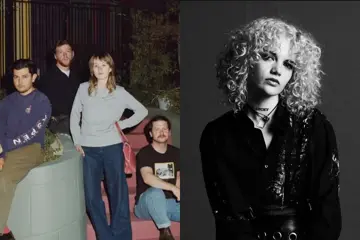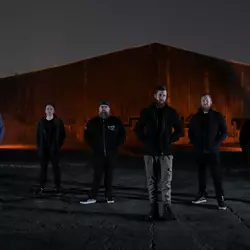 We Lost The Sea
We Lost The SeaTowers
Towers is a big monolithic slab of history and time. It paints human civilisation forging a path that’s both incredible as well as destructive. It's about the rise of nations, economies and science. It about humanity seeming to be invincible, building all these wonderful things to admire ourselves and what we have achieved - only to realise that it is all fallible and nothing lasts forever.
This song took about a year to write, and it had more time and energy put into it than any other song. The first half was written in a big chunk in a house in Calderwood on the NSW coast and the second half came together with Matt and I in a dingy hotel room in Wuhan, China. It’s a statement for the band in many ways.
A Beautiful Collapse
This song is about when we’ve failed for too long and chosen to ignore science and the planet’s own desperate cries and we’ve hit the tipping point. It starts as a reflection on what was great, like a nostalgic view of our past, then moves to an unstoppable and devastating change. Perhaps it's from the view of the universe who watches back in on itself as we appear and disappear as a tiny blip on the cosmic radar. Or maybe it’s from the viewpoint of a particularly nonchalant omnipotent being who watches from afar with a morbid curiosity as the last death throes of humanity shudder one last time. Destruction as a form of creation.
Dust
Dust was probably the first musical idea that was floating around for this album. It’s such a strong guitar idea that we had a really difficult time trying to turn it into something bigger. In the end we just trusted that it was nice enough and part of the timbre of the record. So we all stood in a room and just kinda noodled about until some nice moments were happening. I feel like it’s a nice segue from the first two songs, which are more setting the scene for our mother and son narrative and this fast forwards us to a time and place that we haven’t seen yet, that we haven’t lived through.
Parting Ways
Don't miss a beat with our FREE daily newsletter
This is the beginning of our narrative. We meet the mother and son, and see the day to day repetition of just being able to survive. We learn that the son is dying, and the mother decides to take him out for the day. This song is a journey, it ebbs and flows and accelerates to a point that's almost out of control. And then it suddenly changes mood, and we are back to a more sombre morose contemplative moment. One that sees the mother and son both looking back on their day, and the setting sun.
Distant Shores
I wrote the initial guitar Idea when I was about 18, I am now 32 and it's always been something I’ve tried to get onto a recording somewhere. It was always under the working title, A Sea Shanty, because that is how I felt when I wrote it. Here it works: it’s contemplative, it’s soothing, like a mother with her sick child, calming. It's meant to give you time to emotionally digest the slab of music before it and after it and give the listener a chance to breathe. So sit back, close your eyes, and think of the water slowly crashing against the shore.
The Last Sun
This is in a lot of ways both the entire narrative and also such a small peak into a moment within our mother and son narrative. It’s both the creation of society and social structures, political, religious, it is architecture, the economy and the collapse of all of that, and the lament for it. And it is a mother holding her son as he takes his last laboured breath, the whirlwind of grief and anger and disbelief all at once, and then the quiet, as she sits and holds him and contemplates "How did this happen?" and asks a simple "Why?". It's the understanding of rest, for the son, for the mother and that it is the end for them both, and maybe that’s OK. The song ends with the mother alone at the water’s edge, not being able to comprehend why the leaders of men who knew this would happen let it happen for greed. She lost her son, for what?
Mother's Hymn
This is almost an epilogue. It’s set now, and it’s just one question. Is it too late? Can we come back from the brink? Or is this all for nothing.
I heard a piano idea Mat Kelly (piano / keys) had been playing when we away for a weekend, and it struck me - it felt very gospel. I didn’t forget it and about three weeks before we recorded I got him to send me the idea. I sent it to Louise (Nutting - Wartime Sweethearts) and gave her very vague and probably incoherent instructions about what I was after and she came back with a demo that had me dancing around my lounge room in my underwear, drunk on red wine with tears streaming down my face. When we got into the band room to write it we wrote some horrible Rooty Hills RSL rock song, and we took that to the studio. The night before we started recording while we were already at the studio we made a call that it wasn’t good enough and that we’d change it the next day. And we did. Boy, am I glad.

